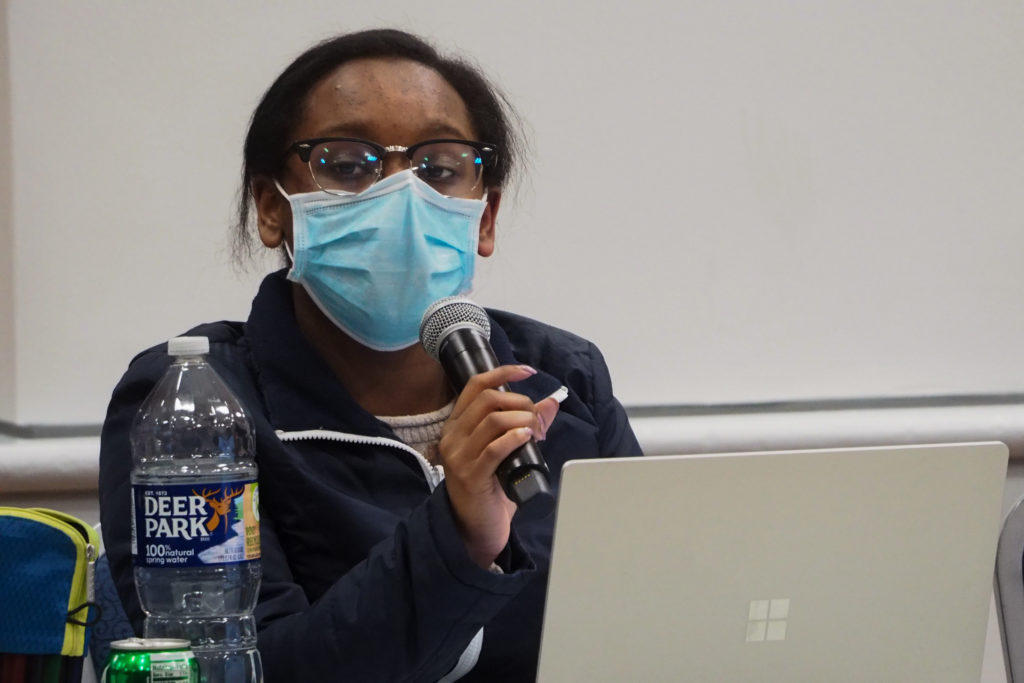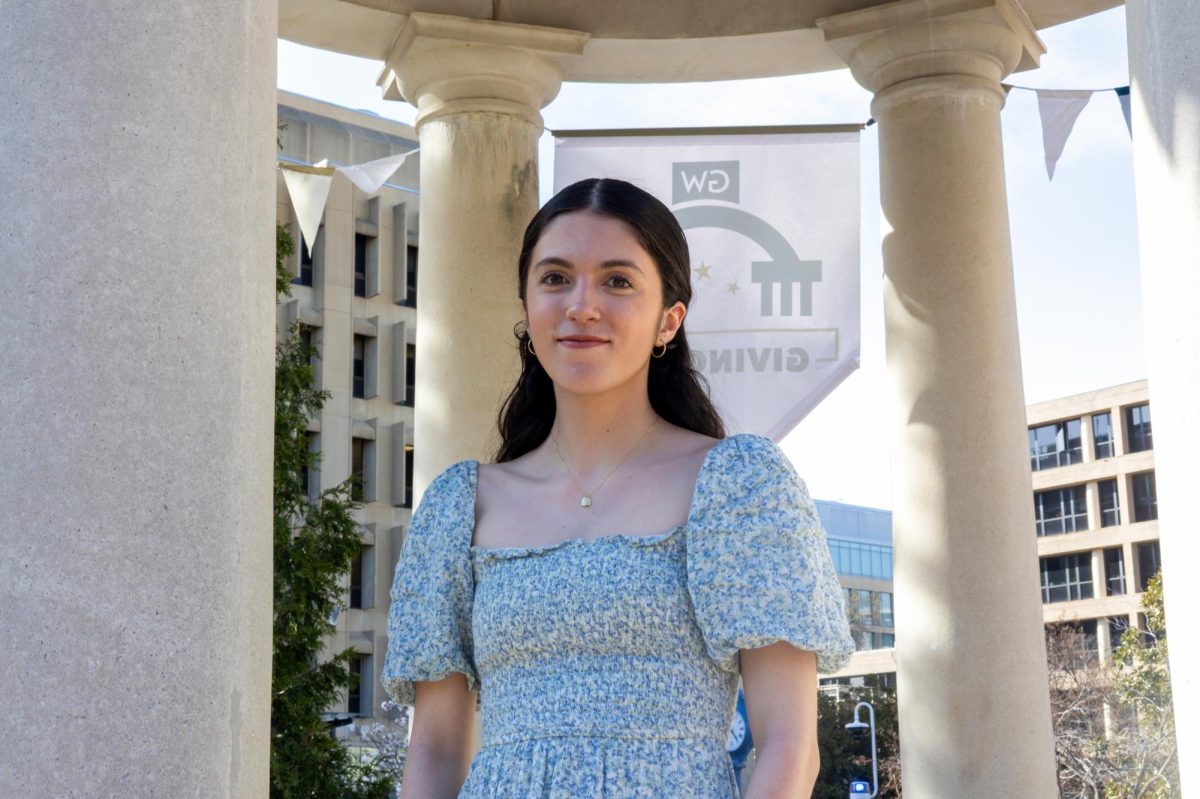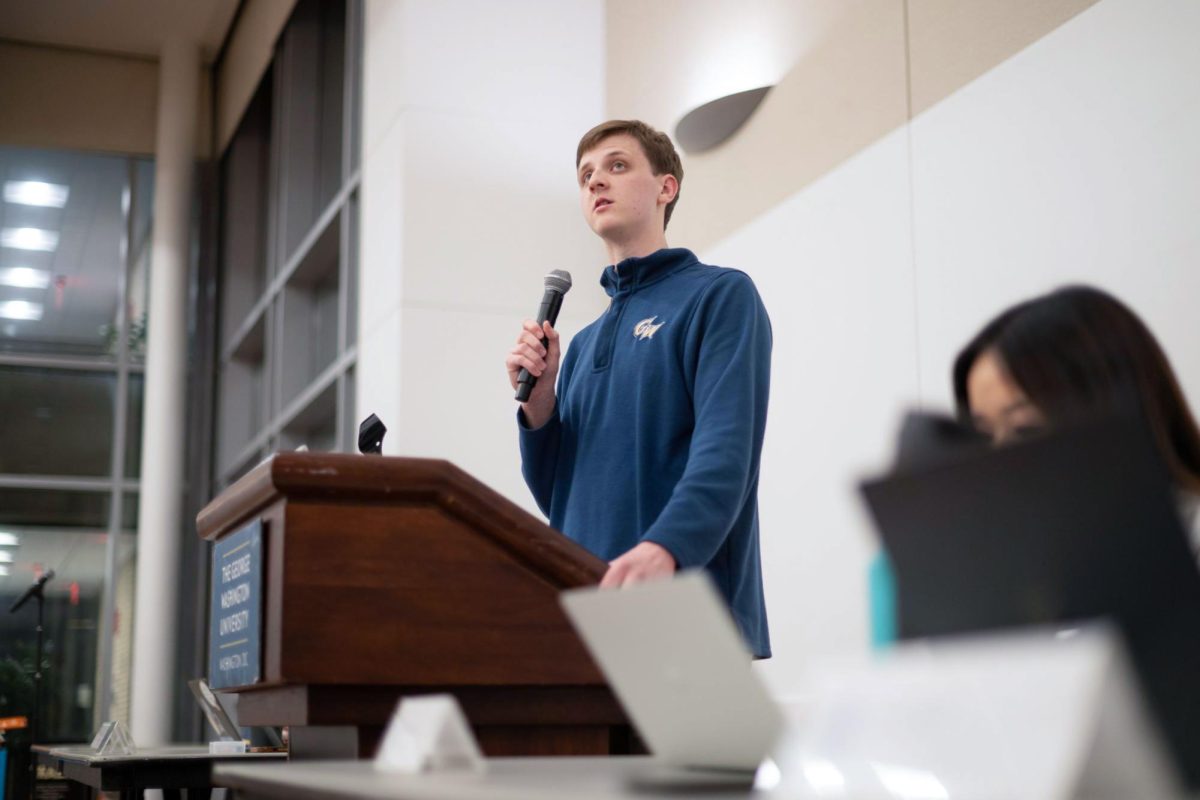The Student Association Senate passed a pair of resolutions to advance efforts to promote inclusion with stronger financial support for refugees and a diversity course requirement for undergraduates during a meeting Monday.
Senators unanimously passed The Welcoming Campus Initiative Act to encourage officials to implement a proposal drafted by No Lost Generation GWU to make the University more accessible to students with refugee backgrounds through scholarship and mentorship programs. The senate also unanimously voted to create a University-wide general education requirement for all undergraduates to take courses focused on diversity, equity and inclusion.
Sen. Dasia Bandy, ESIA-U and the chair of the senate’s diversity and inclusion assembly, sponsored both resolutions on the same day she announced her plan to run for SA president, hoping to revamp the student experience with expanded inclusive initiatives, like new bias testing requirements.
SA President Brandon Hill – a co-sponsor of The Diversity, Equity, and Inclusion Education Requirement Act – said he is working with officials and faculty to establish a new course requirement by next fall in the aftermath of a string of racist and anti-semitic attacks that have taken place on campus since 2018.
“It falls in line with our market basket schools,” Hill said at the meeting. “We also have some of the lowest general education requirements of our market basket schools in comparison, and this has been in the works for about three years now.”
Senior Olivia Issa, the president of No Lost Generation, said The Welcoming Campus Initiative Act provides a “holistic approach” toward sponsoring domestic and international students with programs that can ultimately streamline their application process. She said the initiative would fund scholarships for students with refugee status and provide applicants with mentors – provisions that serve as “pathways” for students trying to achieve citizen status in the United States under adverse conditions with about 26 million refugees worldwide, including more than one million who have fled Ukraine under the Russian invasion.
“This is really important to me seeing as this has affected my family in the past and is why I’m here today,” Issa said at the meeting. “On a statistics level, this is really important to me, because in the world there are over 26 million refugees and that number is growing on a daily basis as we see in Afghanistan and Ukraine. And only 1 percent of that 26 million people are resettled every year into safe countries.”
The resolution states that other higher education institutions currently offer scholarships for refugee students, including Columbia University and the University of California-Irvine. More than 10 students with refugee backgrounds spoke during the meeting’s public comment session to urge senators to pass the resolution, saying that a scholarship fund would help bring more students with refugee statuses to GW.
The senate voted to allocate nearly $27,000 to the South Asian Society for their South Asian Heritage Celebration that will take place in March in University Yard. The funding will cover the rental cost of U-Yard and booking hip-hop artist Abhi the Nomad as a performer and alternative rock singer Sameer Gadhia as a speaker.
The senate unanimously voted to allocate more than $21,000 to TEDxFoggyBottom to cover costs to book speakers and venues for their upcoming conference next month. Sophomore Ignacio Gomez, the operations director of TEDxFoggyBottom, said the organization is hosting their events in Daughters of the American Revolution Constitution Hall instead of Lisner Auditorium because of scheduling conflicts with GW Events and Venues.
Senators voted to grant the Students Music Coalition nearly $12,700 for the club’s first Put Me On Festival, which will highlight different GW artists that work in visual, fashion and music disciplines with art displays, according to the group’s presentation.
The senate also passed the Financial Reform Act to replace the existing financial bylaws with a Code of Financial Policies, a separate governing document that includes all of the SA’s financial policies and regulations. The Office of the Legislator General filed a complaint in the Student Court last month opposing updates to the finance bylaws by alleging that imposing sanctions on student organizations is unconstitutional.
SA Sen. Yan Xu, ESIA-U and defendant in the case, said in his motion to stay the court’s decision on the case that the Financial Reform Act will resolve the issues the Office of the Legislator General cited in their complaint. The sections on sanctioning and fining student organizations that the plaintiffs claim are unconstitutional have been struck from the Code of Financial Policies, according to the legislation.
The next senate meeting will be held March 7 at 8:30 p.m. in the University Student Center’s Continental Ballroom.








